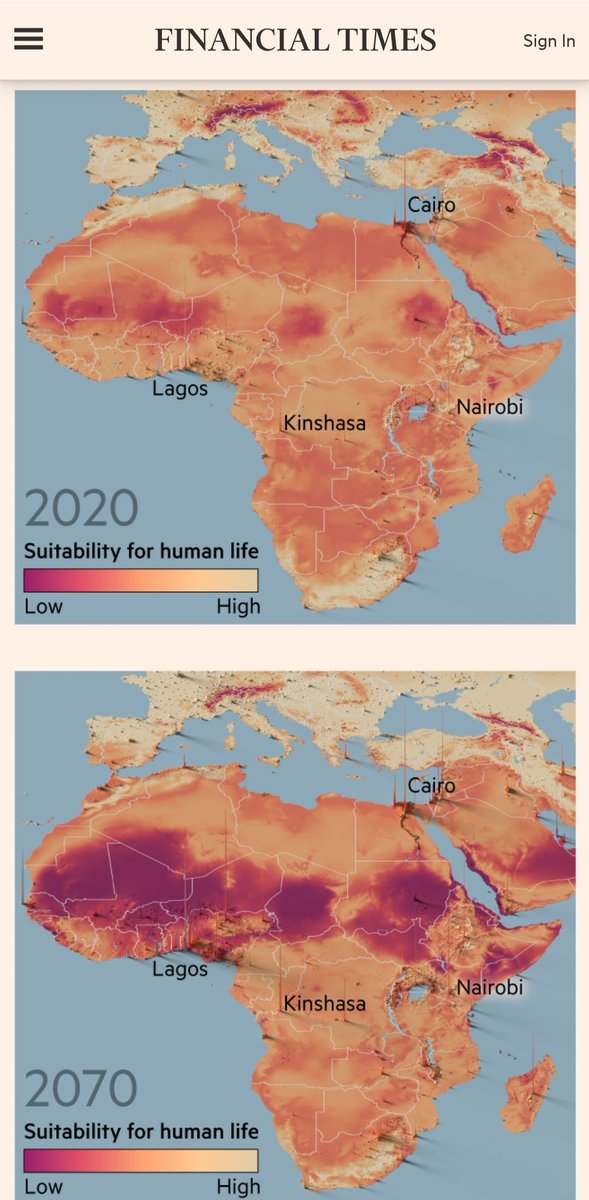
STOP TELLING KIDS THEY'LL DIE FROM CLIMATE CHANGE
"Many young people feel like their future is in peril. To make progress on climate change, we must move past doomsday scenarios."
LOVE this timely piece by @_HannahRitchie from @OurWorldInData in @WIRED 🧵
wired.co.uk/article/climat…
"Many young people feel like their future is in peril. To make progress on climate change, we must move past doomsday scenarios."
LOVE this timely piece by @_HannahRitchie from @OurWorldInData in @WIRED 🧵
wired.co.uk/article/climat…
Hannah mentions a recent survey among 16-25 olds in many countries: 55% said humanity was doomed due to climate change and 39% are hesitant to have children as a result.
Let that sink in dear people working on climate change communication! You are causing a massive depression.
Let that sink in dear people working on climate change communication! You are causing a massive depression.
Hannah is one of my heroes in this field with her relentless stream of @OurWorldInData articles that provide facts and meaning.
But she nearly walked away from the field herself because she just oscillated between anger and hopelessness! Is that what we want to achieve?
But she nearly walked away from the field herself because she just oscillated between anger and hopelessness! Is that what we want to achieve?
One of the most egregious and extreme examples is Roger Hallam, founder of Extinction Rebellion, who claims annihilation is locked in.
Now I love a bit of rebellion against stupidity myself but please know that scientifically speaking, that is not true, and he is a nutcase.
Now I love a bit of rebellion against stupidity myself but please know that scientifically speaking, that is not true, and he is a nutcase.
I also was guilty of it myself recently as I tweeted a humorous @UNDP clip about a dinosaur telling us to get our shit together before we make ourselves extinct.
For the record: I think we *are* getting our shit together! (Albeit too slowly.)
For the record: I think we *are* getting our shit together! (Albeit too slowly.)
https://twitter.com/AukeHoekstra/status/1454875577198989321?s=20
Hannah describes why we get to feel this way (she's been there) but also why we should be optimistic that we should be able to avoid fate. Here she formulates it especially well I think. 

She pointedly concludes: telling our children they are going to die from climate change is not only cruel, it might actually make it likely to come true.
That message needs to be repeated often and loud. It's the scientific, effective and decent thing to do.
That message needs to be repeated often and loud. It's the scientific, effective and decent thing to do.
My little gesture to that effect is to pre-publish a snippet of a scientific article I'm writing on this and I would love your comments.
neonresearch.nl/why-we-must-mo…
neonresearch.nl/why-we-must-mo…
• • •
Missing some Tweet in this thread? You can try to
force a refresh











